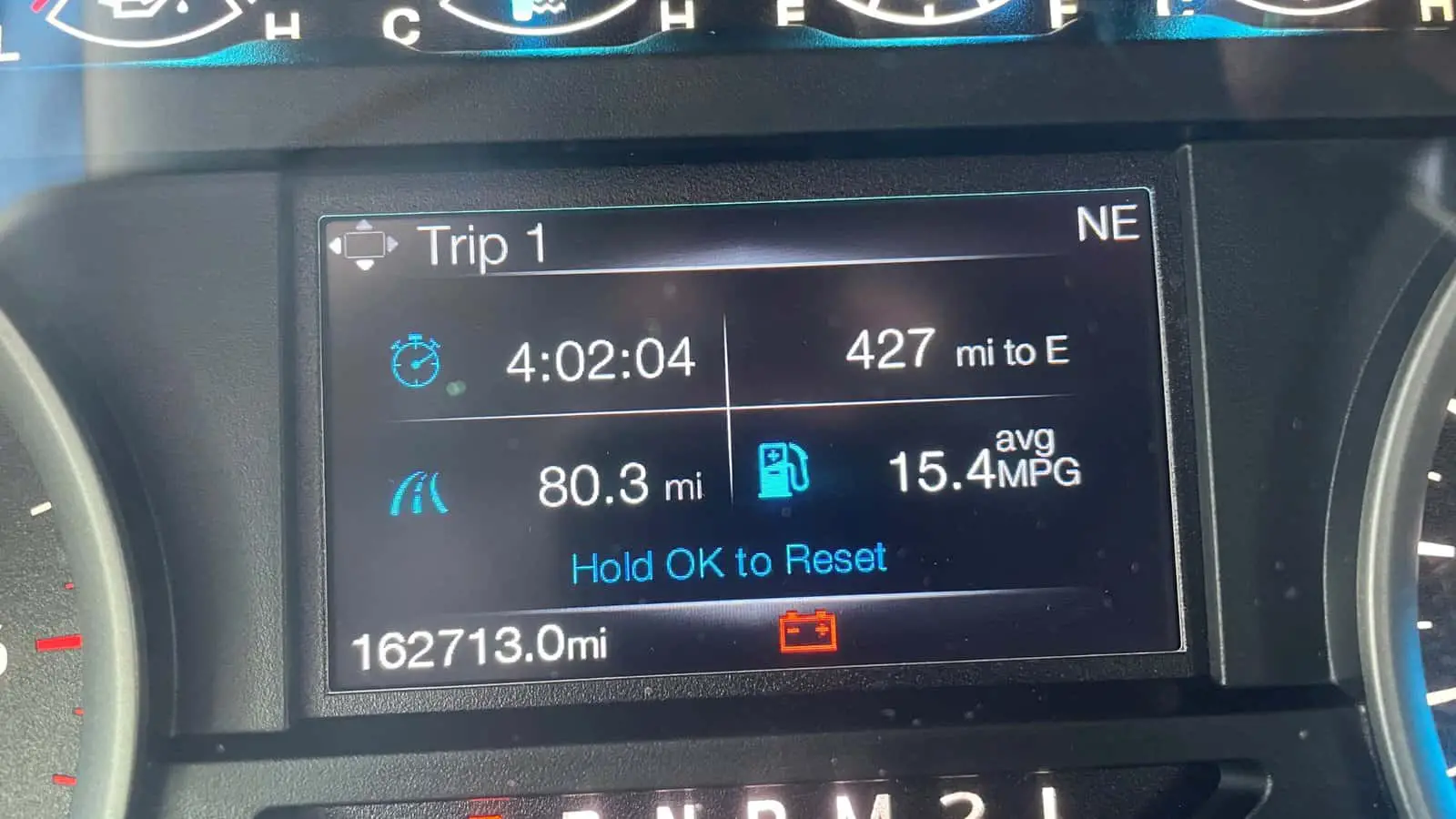Towing a travel trailer can be a fun and exciting way to explore the great outdoors, but it can also be a significant drain on your tow vehicle’s fuel efficiency.
Fortunately, there are a variety of steps you can take to improve your tow vehicle’s fuel efficiency while pulling a travel trailer. In this article, we’ll discuss 17 tips to help you save on fuel costs and reduce your carbon footprint during your next adventure.
1. Properly Inflating Tow Vehicle and Travel Trailer Tires to Minimize Tolling Resistance
Proper tire inflation is critical for maintaining fuel efficiency when towing a travel trailer. Underinflated tires can cause increased rolling resistance, which forces your vehicle to work harder and consume more fuel. Check your tow vehicle and travel trailer’s tire pressure regularly, and adjust as needed to match the manufacturer’s recommendations.
2. Implementing a Fuel-efficient Driving Style, Such as Fradual Acceleration and Coasting
Adopting a fuel-efficient driving style can help you conserve fuel when towing a travel trailer. Gradual acceleration, rather than sudden bursts of speed, can help reduce fuel consumption. Additionally, coasting when possible can help save fuel by allowing your vehicle to maintain momentum without using additional gas.
3. Utilizing Cruise Control to Maintain a Consistent Speed and Reduce Fuel Consumption
Cruise control is a useful tool for maintaining a consistent speed while towing a travel trailer. By keeping your speed steady, cruise control can help reduce the need for constant acceleration and deceleration, which can result in improved fuel efficiency.
4. Regular Maintenance of Your Tow Vehicle, Including Oil Changes and Air Filter Replacement
Keeping your tow vehicle in top condition through regular maintenance is essential for optimal fuel efficiency. Regular oil changes and air filter replacements can help ensure that your engine runs efficiently, reducing fuel consumption while towing a travel trailer.
5. Adjusting The Weight Distribution Hitch To Optimize Travel Trailer Balance And Alignment
A properly adjusted weight distribution hitch can help improve fuel efficiency by ensuring that your travel trailer is balanced and aligned with your tow vehicle. This reduces drag and allows your vehicle to tow the trailer more efficiently.
Take a look at our article on: Best Weight Distribution Hitch For (Safe Proper Towing)
6. Avoiding Excessive Idling While Towing a Travel Trailer
Excessive idling while towing a travel trailer can lead to unnecessary fuel consumption. Turn off your engine when you’re not actively driving to save fuel and reduce emissions.
7. Strategically Planning Your Route To Avoid Steep Inclines And Heavy Traffic
Route planning is crucial for maximizing fuel efficiency when towing a travel trailer. Avoid steep inclines and areas with heavy traffic, which can require more energy from your tow vehicle and result in increased fuel consumption.
8. Choosing a Tow Vehicle With a Fuel-efficient Engine And Transmission
Selecting a tow vehicle with a fuel-efficient engine and transmission can significantly impact your fuel efficiency when towing a travel trailer. Consider vehicles with advanced technology, such as diesel engines or hybrid systems, to help reduce fuel consumption.
9. Minimizing The Weight Of Your Travel Trailer By Only Carrying Essential Items
Reducing the weight of your travel trailer can help improve your tow vehicle’s fuel efficiency. Only pack essential items, and avoid carrying excess items that can add unnecessary weight to your trailer.
10. Installing a High-Quality Air Intake System to Improve Engine Efficiency
A high-quality air intake system can help your tow vehicle’s engine perform more efficiently by providing a greater volume of clean, cool air. This can result in improved fuel efficiency while towing a travel trailer.11. Utilizing an engine programmer to optimize your tow vehicle’s performance and fuel consumption
An engine programmer can help optimize your tow vehicle’s performance and fuel consumption by adjusting various engine parameters. This can result in improved fuel efficiency and increased power when towing a travel trailer.
12. Ensuring Your Tow Vehicle And Travel Trailer Are Properly Aligned To Reduce Drag
Proper alignment between your tow vehicle and travel trailer is essential for reducing drag and improving fuel efficiency. Check your tow vehicle and trailer’s alignment regularly, and make adjustments as necessary to ensure they are properly aligned.
13. Upgrading Your Tow Vehicle’s Exhaust System For Improved Efficiency
An upgraded exhaust system can help improve your tow vehicle’s fuel efficiency by reducing back pressure and allowing your engine to breathe more easily. This can lead to better performance and reduced fuel consumption while towing a travel trailer.
14. Monitoring Your Tow Vehicle’s Tire Pressure Regularly And Adjusting as Needed
As mentioned earlier, proper tire pressure is crucial for maintaining fuel efficiency when towing a travel trailer. Monitor your tow vehicle’s tire pressure regularly and adjust as needed to match the manufacturer’s recommendations.
15. Practicing Proper Shifting Techniques When Using a Manual Transmission Tow Vehicle
If your tow vehicle has a manual transmission, using proper shifting techniques can help improve fuel efficiency. Shift at the appropriate engine RPMs to ensure smooth transitions and avoid over-revving, which can lead to increased fuel consumption.
16. Reducing The Use Of Air Conditioning And Other Energy-Consuming Accessories
Air conditioning and other energy-consuming accessories can significantly impact your tow vehicle’s fuel efficiency. Limit the use of these accessories when towing a travel trailer to conserve fuel and reduce emissions.
By implementing these tips and strategies, you can improve your tow vehicle’s fuel efficiency while pulling a travel trailer, saving money on fuel costs and reducing your environmental impact.
Good luck, and happy camping!
Check out our article on: What Size Truck Do I Need To Pull A Travel Trailer? A Guide To Safe Towing

